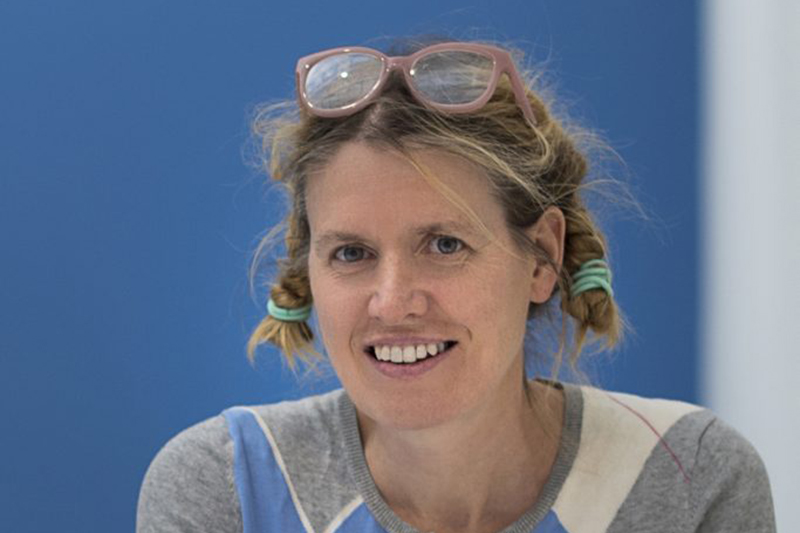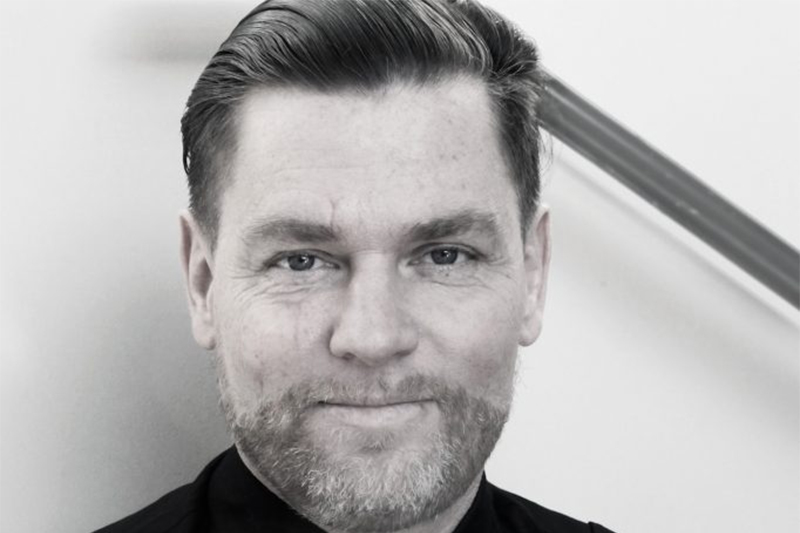
UDK Berlin – professor Ineke Hans –
Project Group Design & Social Context
Ineke Hans
Ineke Hans designs furniture, products, exhibitions and spaces with content, explores new design strategies and works for leading international manufacturers. In 1998 she set up her studio in the Netherlands after studying Product Design Arnhem (NL) and graduating with an MA in Furniture Design from the Royal College of Art in London. In 2015 she moved back to the UK to set up the London Salons to look into ‘the future of furniture design and the changing position of the designer’.
Since 2017 she is professor Design & Social Context at the University of the Arts in Berlin.
As many dutch designers Ineke started off by initiating furniture and product collections herself, still sold via INEKEHANS | COLLECTION today. Her early work centered around pictograms and archetypes, but it has evolved in many ways; investigating the psychological roots of products, perceiving and playing with the interaction between people, objects and space.
STUDIO | INEKEHANS nowadays designs both industrial furniture and products as well as handmade items produced in smaller batches and also works on exhibitions and architectural commissions for manufacturers like Arco, Cappelini, Iittala, Lensvelt, Magis, Offecct, Royal Ahrend, RoyalVKB, and clients like Cooper Hewitt Museum (NY), Royal Dutch Forestguard, Shorefast Foundation (CA) and Dutch governmental organisations.
Ineke Hans is valued for her down-to-earth and simultaneously hybrid design approach with a focus on detail, function and clarity, an interest in the vernacular as well as our future society. Old and brand new production methods are used in intelligent, unconventional ways, but all work is based on the interest to design and define projects fitting to future ways of living and working together.Crafts, industrial methods, and digital production are equally important to her: ‘We have to cherish all skills. Designers can use them to make products by challenging the old techniques, just as they have to stretch the limits of a modern laser cutter and recent open source methods.’ Innovative materials and production techniques and thinking about future human values and habits have become most important triggers for new work and make it multi layered, playful and social. Her work have won prestigious international design awards and her work is globally purchased by museums and collectors.
Ineke Hans is regularly involved in international talks and debates on design. In 2014/15 she was Guest Professor Produkt Design in Kassel (Germany).
Her investigations and research with INEKEHANS | SALON in London underlined her position as one of the leading Dutch designers at the forefront of dealing with the societal changes the design profession currently needs to deal with.
Hermann August Weizenegger
Hermann August Weizenegger is an institution in the Berlin design scene. He is one of the founding members of Design-Mai (later DMY) and has also taught as a professor of design at the Potsdam University of Applied Sciences since 2004. He became known with his label Vogt+Weizenegger, which he founded in 1992 together with Oliver Vogt, whom he met during his studies at the HdK (UDK) Berlin. At the end of the 1980s, concept design was taught there that broke with bourgeois aesthetics and wanted to make design accessible to everyone. The designers applied this principle, for example, in the Blaupause project (1993), in which they sold blueprints instead of a finished product. One of their greatest successes was the retrospective exhibition DESIGN_MATRIX (2006) at the Marta Herford Museum, which showed their most famous projects, such as the Imaginary Factory and the Sinterchair Factory of the Future.
Since 2009, Hermann August Weizenegger has been running his label HAW, which is composed of the initials of his name. His ensembles, which he calls “design works”, do not focus on the product to be designed.
In their formal and functional distinctiveness, the objects are rather
in that they function as an integral part of an autonomous design cosmos, as in the projects “Digital Couture” (2009) or “Hotel Dresden” (2010), in which the designer worked together with manufactories on the fictitious reconstruction of an Art Nouveau inventory shown in the rooms of the Berlin Haubrok Foundation.
His staged flower fairy tale “Die Falsche Blume”(2016), which was staged and exhibited at the Kunstgewerbemuseum Dresden, Schloß Pillnitz, attracted great attention. The exhibition was a composition of stage design, music composition and dance performance, which was equipped with almost 60 products, which were realized with 16 manufactories. Well-known manufactories such as Meissen, Curt Bauer and the Sebnitzer Kunstblume among others participated in the Gesamtkunstwerk.
In addition to the extensive exhibition projects, the studio also works for manufacturers such as Porcelaingres, MAWA and Pulpo.
Hermann August Weizenegger was nominated for the “Best of German Interior Design” by the German Design Council in 2017.
Mark Braun
Born in 1975, designer Mark Braun has been running his own studio for product design in Berlin since 2006 with a team of 3 people. At the beginning of the summer semester 2015 he took over a professorship for product design/industrial design at the HBKsaar.
After training as a carpenter, he studied industrial design from 2000 to 2006 at the Potsdam University of Applied Sciences, the Design Academy Eindhoven and the Burg Giebichenstein University of Art and Design in Halle. After completing his studies, Mark Braun founded his own design studio in Berlin, which stands for high-quality services in the field of industrially manufactured products, accessories, furniture and lighting.
The studio’s customers include internationally renowned companies such as Mono, E15, Lobmeyr, KPM Berlin, NOMOS Glashütte, THONET and many others. Many of his works have been awarded renowned prizes such as the iF Design Award or the Red Dot Award. Mark Braun was awarded the German Design Award in 2014 for the design of the Metro watch model with numerous variants by Nomos Glashütte. In addition, Mark Braun was involved in teaching at various universities. In 2014 he was guest professor at the HKD Burg Giebichenstein, in 2015 he took over a guest professorship at the École cantonale d’art de Lausanne.


